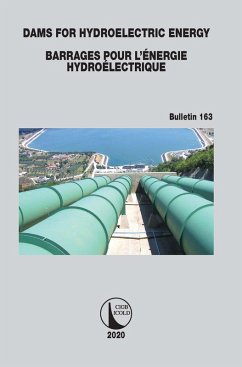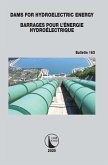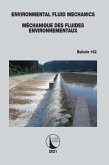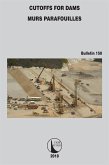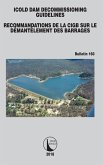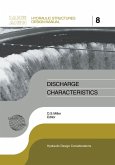The Bulletin is intended as a general document aimed at a wide technical audience involved with or affected by hydropower. Basic background data and some statistics are presented, with specific reference to hydro-electricity production, hydropower dams, hydropower plants, in operation or under construction. Key aspects of hydropower are discussed. Data are presented about typical capital and both internal and external operating costs. Environmental and social impacts are discussed and reference is made to the impact reservoirs have on greenhouse gas emissions. A section is dedicated to the exploitation of tidal energy by means of barrage systems. The current extent of hydropower development and the influence of policies aimed to favour the development of renewable energies are also discussed. Reference sources of information, on hydropower in general and interesting case-histories, are provided.
Le Bulletin se veut un document général destiné à un large public technique impliqué ou affecté par l'hydroélectricité. Des données de base et quelques statistiques sont présentées, avec une référence spécifique à la production hydroélectrique, aux barrages hydroélectriques, aux centrales hydroélectriques, en fonctionnement ou en construction. Les principaux aspects de l'hydroélectricité sont discutés. Les données sont présentées sur le capital type et les coûts de fonctionnement internes et externes. Les impacts environnementaux et sociaux sont discutés et il est fait référence à l'impact des réservoirs sur les émissions de gaz à effet de serre. Une section est dédiée à l'exploitation de l'énergie marémotrice au moyen de systèmes de barrage. L'ampleur actuelle du développement hydroélectrique et l'influence des politiques visant à favoriser le développement des énergies renouvelables sont également abordées. Des sources d'information de référence, sur l'hydroélectricité en général et des études de cas intéressantes, sont fournies.
Le Bulletin se veut un document général destiné à un large public technique impliqué ou affecté par l'hydroélectricité. Des données de base et quelques statistiques sont présentées, avec une référence spécifique à la production hydroélectrique, aux barrages hydroélectriques, aux centrales hydroélectriques, en fonctionnement ou en construction. Les principaux aspects de l'hydroélectricité sont discutés. Les données sont présentées sur le capital type et les coûts de fonctionnement internes et externes. Les impacts environnementaux et sociaux sont discutés et il est fait référence à l'impact des réservoirs sur les émissions de gaz à effet de serre. Une section est dédiée à l'exploitation de l'énergie marémotrice au moyen de systèmes de barrage. L'ampleur actuelle du développement hydroélectrique et l'influence des politiques visant à favoriser le développement des énergies renouvelables sont également abordées. Des sources d'information de référence, sur l'hydroélectricité en général et des études de cas intéressantes, sont fournies.
Dieser Download kann aus rechtlichen Gründen nur mit Rechnungsadresse in A, B, BG, CY, CZ, D, DK, EW, E, FIN, F, GR, HR, H, IRL, I, LT, L, LR, M, NL, PL, P, R, S, SLO, SK ausgeliefert werden.

